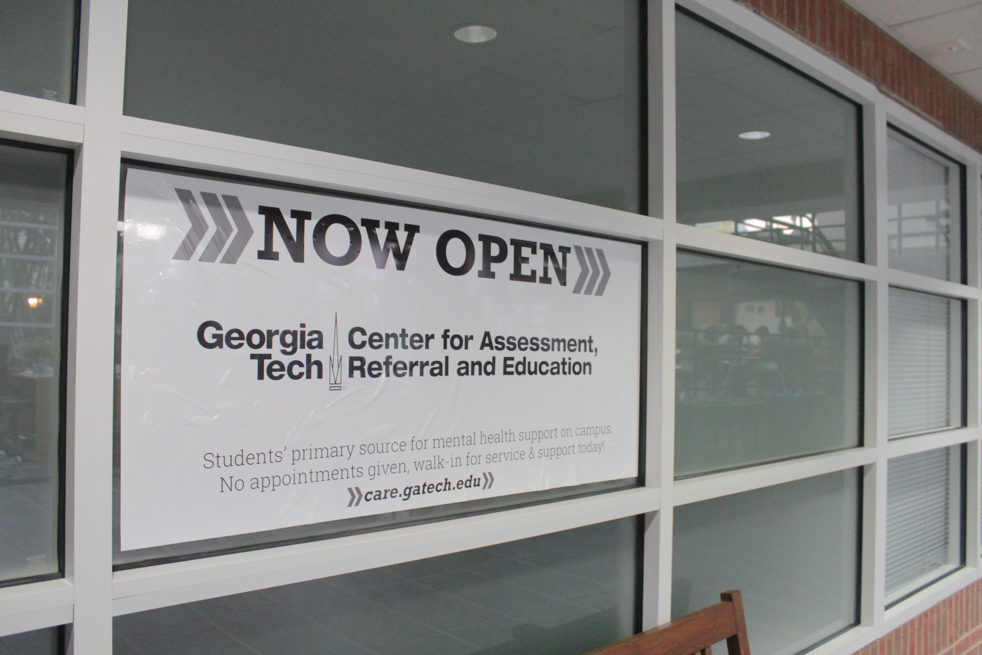The rigors and transition of college life present unique challenges for many students. Finding needed help to such challenges is oftentimes challenging. With the opening of the Center for Assessment, Referral and Education (CARE) at the beginning of this school year, students at Tech now have another avenue available when seeking guidance.
The Technique chatted with Dr. Tiffiny Hughes-Troutman, the director of CARE to learn more about how this resource can help students, especially in the aftermath of the mental health crises of last year.
“We are really streamlining access to services, reducing barriers and contributing to reduction of stigma for help-seeking through CARE,” said Hughes-Troutman. “I’m really excited and thrilled to offer a new pioneering solution to students at Georgia Tech.”
CARE uses a triage system to assess students with mental health and well-being related concerns and point them to a variety of services depending on the case at hand. To then schedule appointments, the center partners with a number of resources on and off campus, such as The Counseling Center under student life, STAMPS psychiatry and other wellbeing services ranging from academic to identity based. It therefore acts as point of access for mental health services on campus, while also offering extensive case management if needed.
Students can also find help through CARE before a wellbeing concern becomes a crisis. The center’s walk-in assessments are confidential, and at no charge for degree-seeking enrolled students. Hughes-Troutman stressed the importance of finding help quickly.
“Some students believe they have to have a diagnosis or serious problem before going to CARE. If you have a concern that’s affecting your health and well-being of any nature, you can visit CARE,” said Hughes-Troutman. “You may have symptoms, questions about your emotional state and wonder if it’s serious. You may have mild concerns, or you may have been in treatment and have received support in the past. Anywhere you fall, CARE is the place to start.”
The physical location of CARE used to be occupied by central housing until just this year. While small in size, the space has been maximized for efficient use. Aside from a pleasant but private front office space (tinted glass and a closed door protects students’ privacy), the center houses a conference consultation center and five offices.
The simplicity of the walk-in-only model brings a breath of fresh air to the bureaucracy of accessing campus services.
“Before, students were often shuffling back and forth between and amongst a number of mental health resources not knowing where to go, and also incurred really long wait times,” explained Hughes-Troutman.
CARE is one of many aspects of the “A Path Forward — Together” initiative started by President Bud Peterson to create a more inclusive, safe, and healthy community at Tech. Some of the stated objectives in the April 2018 report include, “monitoring the needs of campus and campus trends; improving mental health service provision, and reducing what appears to be higher-than-peer average rates of stress, anxiety, and suicidal thinking.”
Given the singularity of the campus environment at Tech, Hughes-Troutman discussed her take on a solution to such concerns within this unique community.
“Despite the literature that suggests that college students are not resilient and that they need to be coddled, I find many strengths in Georgia Tech students,” she said. “They have that internal psychological capital: self-compassion, optimism, hope, grit, and resilience to thrive to meet their goals.”
In order to better address the mental health concerns on campus, CARE plans to help students use their strengths to help improve their wellness. The center also promises to to continue to grow and adapt to the need on campus. Already working on feedback, CARE is currently in the process of hiring more staff to better suit campus needs.
While many students have become disillusioned with the notion of administration checking items off an initiative, the opening of a center like CARE offers a new opportunity for students to feel genuine care.
For walk-in consulation, students can visit CARE at the bottom floor of the Smithgall Flag Building in room 102B.
